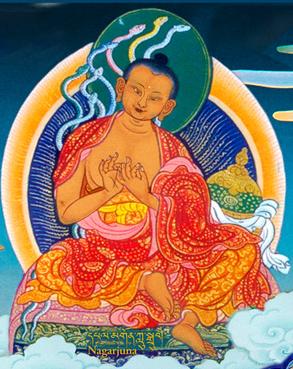
XIII.1.
All conditioned elements (samskara) are things that have basic elements (dharma) which are deception; therefore, they are vain.
XIII.2.
This was spoken by the glorious one to illuminate “emptiness.”
XIII.3.
There is non-self-existence of things since a thing, by observation, becomes something else. (i.e. impermanence)
A thing without self-existence does not exist—due to the emptiness of existing things.
XIII.4.
Nargarjuna answers:
If self-existence does exist, whose “other-existence” would there be?
XIII.5.
Since a youth is not aging (jiryate), and since “who has already aged” is not aging (jiryate).
XIII.6.
But surely “being curds” will be something other than milk.
XIII.7.
But nothing is non-empty, so how will it become empty?
XIII.8.
But those who hold “emptiness” as a viewpoint—the true perceivers have called those “incurable” (asadhya).
Source: Orientalia




